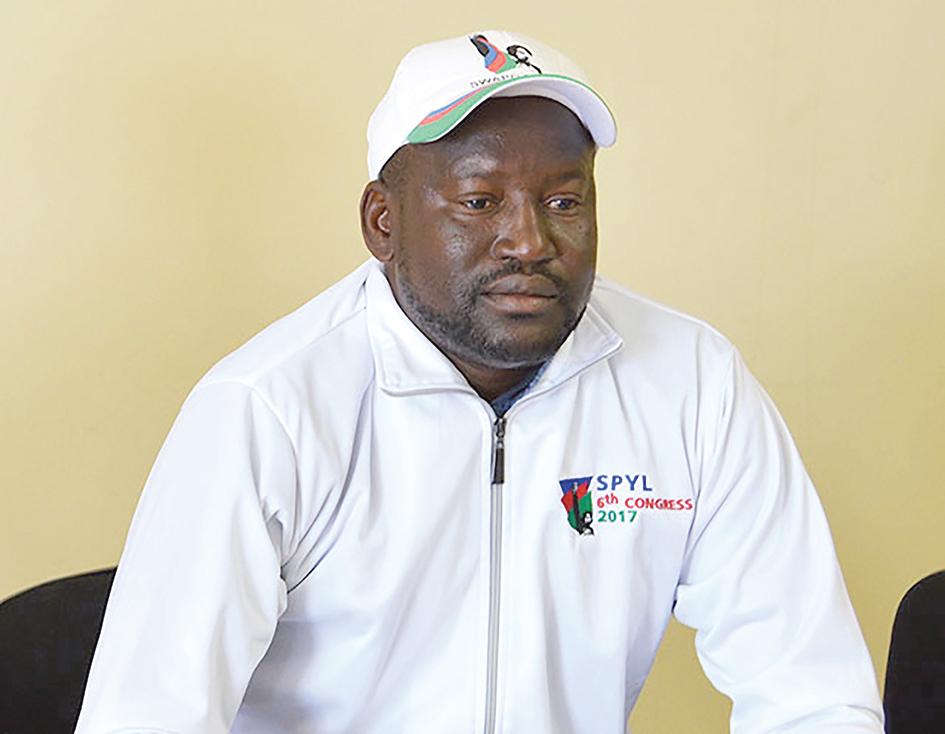STATISTICS collected by the Office of the Prosecutor General indicate a marked improvement in the number of criminal cases that have been finalised in Namibia’s lower courts over the past two years.
Speaking at the opening of the High Court for 2009 in Windhoek yesterday, Prosecutor General Martha Imalwa revealed a set of figures showing that the country’s Regional Courts and Magistrate’s Courts have managed to realise substantial increases in the number of criminal cases finalised last year, when compared to the previous year. Conviction rates have also been upped over the past year.
In Namibia’s Regional Courts – the forum where most of the country’s murder, rape and more serious robbery and fraud trials are disposed of each year – a total of 729 cases were finalised in 2008, Imalwa told the High Court Judges and lawyers gathered for the court’s annual opening. That figure represents a 22 per cent increase over the 594 cases finalised in the Regional Courts in 2007.
Of the cases disposed of in those courts in 2007, 54,8 per cent ended in convictions, while last year 70,9 per cent of the cases ended in convictions, Imalwa said.
Incomplete figures received by her office so far show that a conviction rate of 55,5 per cent was realised last year with the 28 908 criminal cases that were finalised in the Magistrate’s Courts, Imalwa said. In 2007, 22 830 criminal cases had been finalised in the Magistrate’s Courts, with a conviction rate of 41,6 per cent recorded.
Imalwa commented that these figures pointed to a ‘marked improvement in the performance of the lower courts, at a time when we mostly hear criticism of those courts’.
The High Court, too, has another busy year behind it. In his remarks at the opening, Judge President Petrus Damaseb also revealed statistics on the number of cases this court dealt with during 2008.
Aside from matters attended to only by the Court Registrar, the High Court dealt with a total of 7 387 cases last year, which is an increase of 18,4 per cent on the 6 237 cases that the court dealt with in 2007.
Included in the cases last year were 41 criminal trials, 2 234 reviews of criminal cases originating from Magistrate Courts, 188 criminal appeals, 41 civil trials that were heard, 70 urgent applications in civil cases, 54 Labour Court cases and 4 356 motion court cases, the Judge President said.
The court’s workload appears set to still keep increasing this year. In the court’s first term for 2009, which runs to April 15, 279 cases have already been set down to be heard, Judge President Damaseb said.
The Judge President commented that the backlog of criminal appeals on the court’s roll was significantly reduced over the past year, but that this was achieved at Judges’ expense, with the members of the court’s bench having to work during court recesses – which are actually meant to be used to write outstanding judgements – to rather finalise criminal trials and appeals.
Not only can the High Court expect a still heavier workload in 2009, but it will also have to manage the spreading of that work to a new court at Oshakati.
With a new High Court building at Oshakati now completed and that court expected to be opened soon, he has given the Prosecutor General the green light to set down cases in that court from the second half of February, the Judge President said.
He said the plan is to have two Judges stationed at Oshakati from February to deal with the court’s criminal roll, which would include all criminal reviews and bail appeals from district courts close to Oshakati.
In an address delivered on behalf of the country’s legal profession, Law Society President Schimming-Chase remarked: ‘(L)ast year has been extremely difficult due to the fact that certain members of the public who have not been admitted as legal practitioners have been providing legal services and advice to the public as well as assisting these laypersons in the drafting of documents. In many instances these documents are extensive, voluminous and involve nothing other than highly insulting and defamatory allegations made either against the presiding judge, legal practitioners or their clients.’
Said Schimming-Chase: ‘Access to justice and the rule of law is not promoted by laypersons levelling insults and raising issues and points that one cannot even find in a legal textbook.’
She said the Law Society would be taking steps to caution members of the public against being represented by laypersons who do not have the necessary legal qualifications to provide the advice that they do. ‘The Law Society will also take the necessary steps to ensure that those who do flout the provisions of the Legal Practitioners Act by providing this kind of service without being qualified to do so are dealt with to the full extent of the law,’ she said. – werner@namibian.com.na
Stay informed with The Namibian – your source for credible journalism. Get in-depth reporting and opinions for
only N$85 a month. Invest in journalism, invest in democracy –
Subscribe Now!










